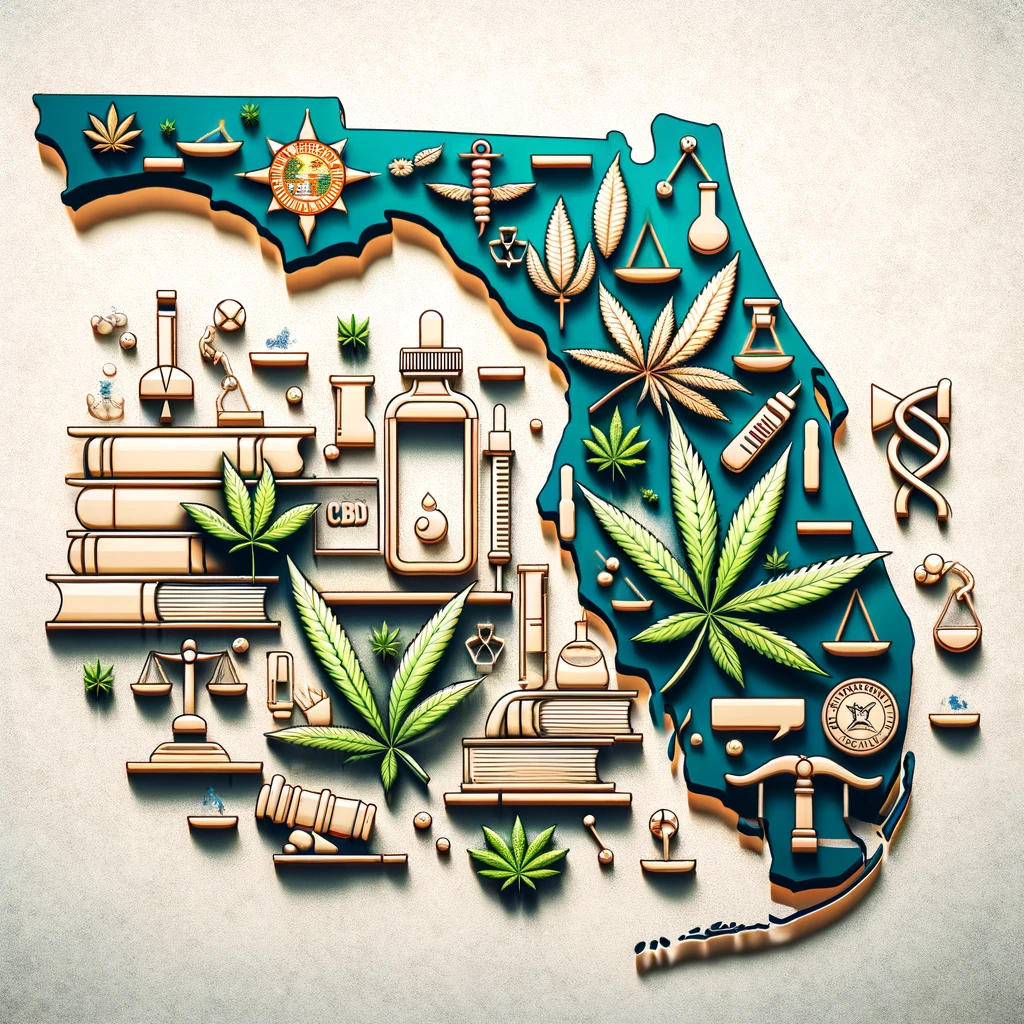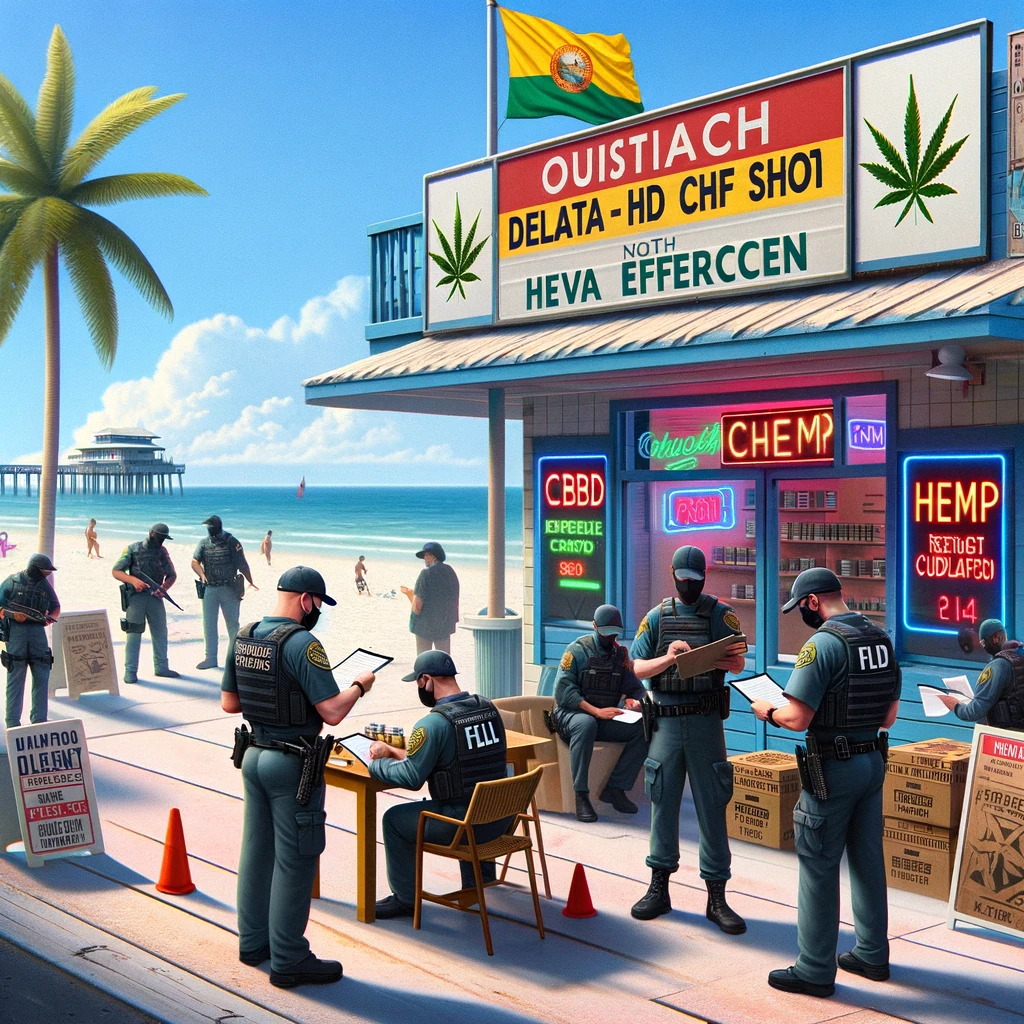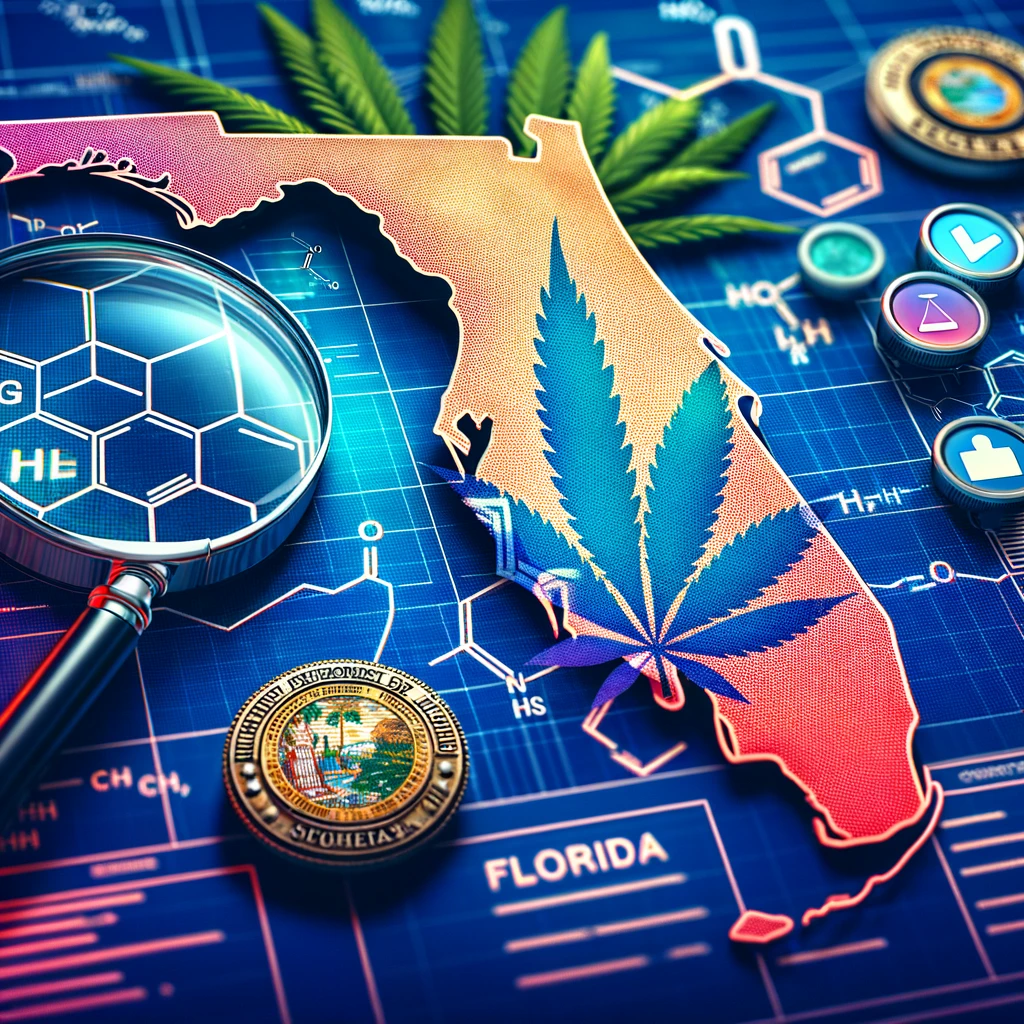Overview
In a recent development, Florida’s legislature has passed a significant bill, Senate Bill 1698, aimed at regulating certain aspects of the state’s hemp industry. The bill, which now awaits Governor Ron DeSantis’s approval, seeks to introduce measures that could reshape the regulatory framework for hemp-derived products.
As reported by the Tampa Bay Times, the House passed the bill with a 64-48 vote, following the Senate’s unanimous decision to regulate hemp-derived products containing delta-8 and delta-10 THC. These cannabinoids, derived from hemp, have become increasingly popular, leading to calls for clearer regulatory guidelines.
Senate Bill 1698 specifically targets products containing delta-8 and delta-10 THC, such as gummies, tinctures, and vapes, and extends its regulatory scope to include other cannabinoids like THCV and THCP. The legislation also proposes limits on the intoxicating potency of delta-9 THC products, with a cap of 5 milligrams per serving or 50 milligrams per package.

Bill Intentions
The intentions behind the bill reflect a growing consensus on the need for regulatory oversight to ensure the safety and health of the public. By proposing these regulations, lawmakers aim to strike a balance between fostering a responsible hemp industry and safeguarding public health.
As an attorney with extensive experience in various legal domains, including real estate, venture capital, and private equity transactions, and as someone who has ventured into the CBD business (I started a CBD company called Maku), I understand the importance of regulatory measures in maintaining industry standards and protecting consumers. While I recognize the potential of phycotherapeutic outcomes offered by cannabinoids like delta-8 and delta-10, I also agree that their availability and usage should be carefully regulated to prevent adverse health effects.
Summary and Analysis
Senate Bill 1698 introduces comprehensive regulations to the Florida hemp industry, with a primary focus on safeguarding public health and preventing the sale and distribution of hemp products that could potentially appeal to children. This legislation amends existing definitions and introduces new terms and conditions under which hemp and hemp extract products can be manufactured, delivered, offered for sale, distributed, or sold within the state. Below, we delve into the critical aspects of this bill, providing an analysis where relevant.
Legislative Findings and Definitions
- The bill underscores that hemp and hemp extract products are not considered controlled substances or adulterants if they comply with the new regulations.
- It introduces a specific definition for “total delta-9-tetrahydrocannabinol concentration,” setting clear standards for THC content in hemp products.
- A significant change is the definition of “attractive to children,” which now encompasses packaging and product forms that mimic widely recognized candies, snacks, or food products, potentially curbing the appeal of these products to minors.
Manufacturing and Sale Regulations
- Hemp extract products must have a certificate of analysis from an independent testing laboratory, confirming the THC content does not exceed regulatory limits and the product is free from harmful contaminants.
- Packaging requirements are now more stringent, including the use of materials that protect the product from light and heat, and the prohibition of packaging that is attractive to children.
- The bill enforces a minimum age restriction, prohibiting the sale of hemp extract products intended for human ingestion or inhalation to individuals under 21 years of age.
![]()
Compliance and Enforcement
- Businesses and food establishments are barred from possessing hemp extract products deemed attractive to children, and event organizers are restricted from promoting or facilitating events where non-compliant hemp extract products are sold or marketed.
- The legislation outlines penalties for violations, including misdemeanors for selling to underage consumers and administrative fines for other breaches of the law.
- A provision is made for the appropriation of $2 million from the General Revenue Fund to the Department of Law Enforcement for purchasing testing equipment to implement the act.
Conclusion
Senate Bill 1698 represents a significant step towards regulating the hemp industry in Florida, focusing on product safety, consumer protection, and particularly the welfare of children. By setting clear definitions and conditions for the manufacture and sale of hemp extract products, the bill aims to eliminate ambiguities in the market, ensuring that only compliant products reach consumers. While the regulations may pose challenges for manufacturers and sellers in adapting to new standards, they also underscore the importance of public health and safety in the rapidly evolving hemp industry.
This legislation is a pivotal moment for stakeholders, including businesses, regulators, and consumers, highlighting the need for responsible industry practices and diligent compliance with regulatory standards. As an attorney with a rich background in legal matters related to real estate, venture capital, mergers & acquisitions, private equity transactions, and firsthand experience in the CBD business, I recognize the complexity of navigating these new regulations. It’s essential for industry participants to stay informed and adapt to these changes proactively, ensuring the sustainable growth of the hemp industry within a regulated framework that prioritizes public health and safety.




